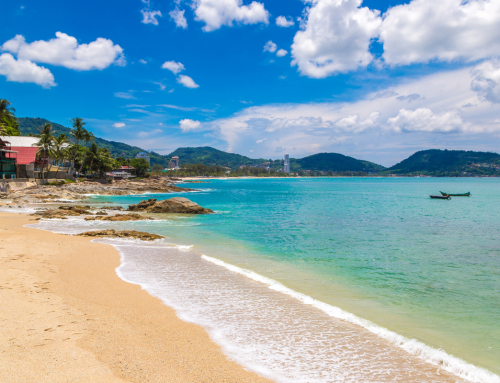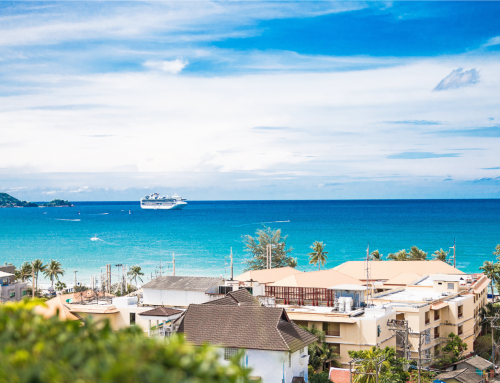We have explained in many previous articles how condominium ownership is the safest and easiest way for foreigners to own real estate in Thailand.
The Condominium Act allows up to 49% foreign ownership of the unit area, as long as the other 51% is owned by Thai nationals.
If you are a foreigner, the main attraction of a freehold Phuket condominium is that you can own it fully, legally and in perpetuity. Until such a time as you choose to sell the property, your ownership is permanent.
The Other Reason to Own a Phuket Condo – More Favourable Inheritance
Freehold ownership is obviously a major plus point for foreigners. Being able to own something outright without worrying about circumnavigating Thai laws, or leasing a property which may only give you 30 years of occupancy, is obviously an attraction for many people looking for a home in Phuket.
But another advantage of freehold condominium ownership is the favourable treatment for inheritance.
That is to say, foreigners are allowed to leave a Thai condominium to their beneficiaries.
Competing Legislation For Phuket Condo Inheritance
Things do seem to be a little easier with leaving a condominium to loved ones on your passing.
But while the laws governing inheritance may be more advantageous for condos than they are for leasehold properties (e.g. villas), they are not perfect. They are also not perfectly clear.
There are two different pieces of legislation which come into play here. The first one is the Condominium Act. It says that a foreigner must inform the Land Office within 60 days of inheriting a condominium.
If specific ownership criteria are then not met, the foreign beneficiary may be forced to sell the condo. This would have to be done within 1 year of the original owner’s death.
The Thai Civil and Commercial Code (CCC) has a different take on inheritance. The CCC suggests that anyone who inherits a property also inherits the legal right to own that property.
The notion that, upon their death, the late owner’s right to buy and own the condo may be passed to his/her beneficiaries has actually been the established legal stance of the Land Department
But the interpretation under the CCC of laws governing inheritance by the Land Department has not been confirmed by sufficient case law for an heir to be 100% certain of receiving permanent ownership rights.
Overcoming FETF Requirements – List ALL Beneficiaries Names on the FETF
The Condominium Act (Section 19) stipulates “Five Doors” to foreign ownership of a condominium in Thailand. One of these is a Foreign Exchange Transaction Form (FETF) issued in the name of the foreigner buyer, confirming the amount and purpose of the funds which were sent into the country.
In order to ease the inheritance process in the future, a buyer should ensure that his/her name – as well as their spouse’s name, and the names of any beneficiaries – be included on the transfer instruction from his/her overseas bank. When sending the money to Thailand, the buyer must also ensure that the amount is at least equivalent the purchase price (plus relevant taxes), and that the telegraphic transfer instruction states clearly that the purpose of the transfer is buying a property.
The receiving bank in Thailand will need to confirm those names, then list each of them on the FETF. Whether the person is a spouse or an eventual beneficiary, the FETF will record each name as a co-owner of the condo. Should the “main buyer” pass away, this sees to it that inheritance is secured.
Without the more favourable interpretation of inheritance law by the CCC, anyone inheriting a property in Thailand — if they decide to maintain ownership — may have to send a telegraphic transfer to a Thai bank equalling the sum needed to purchase the condo.
As strange as that may sound, it is entirely possible that you could effectively be forced to buy the condo you already inherited.
A strict interpretation of the Condominium Act may require them to do exactly that. But if the names are already on the FETF, the problem is solved.
Writing a Will in Thailand for Your Condominium
If you have a parent who owns a condominium you should encourage them to make a Will in Thailand. Likewise, if you are the owner of a condominium in Thailand, you should motivate yourself to write a Will.
Experience tells us that things happen unexpectedly. You probably know people who have suddenly taken ill, and sadly passed away without any warning.
When owing any assets in a foreign country it makes complete sense to plan for such events. Making a Last Will and Testament is vitally important, especially as it easy to do and relatively inexpensive.
Depending on your individual situation, not leaving a Will could potentially turn into a nightmare for your family. The inheritance of your estate could take many years to resolve, and the lawyers fees may wind up taking a huge bite out of what is left.
Anyone who inherited a condominium in Thailand must notify the local Land office within 60 days of the death of the original owner, and being named in the Last Will and Testament as the intended recipient of the condo obviously makes the whole process that much smoother.
You can read our full article on Making a Last Will and Testament in Thailand here:
Making a Last Will and Testament in Thailand
Using an Offshore Company for Inheritance of a Condominium
Some owners decide to purchase their condominium through an offshore company, such as a Mauritius, Seychelles, or more often, British Virgin Islands (BVI) company.
This is because when it comes to sell the property, they do not need to involve the Land Department in Thailand. The ownership of the condo remains with the company, it is just the offshore company ownership that changes.
The advantage of the offshore company when it comes to inheritance is that a company does not “die” and the condominium remains registered under the company name.
The death of an owner means that, provided that succession of the company shares has been taken care of, the beneficiaries simply take over the company. And with the company comes the ownership of the Thai condominium.
As for taxation, the property itself has not been sold, only the offshore company, so this attracts no tax liability in Thailand.
Making an offshore company the registered owner of the property, therefore, is a fairly good strategy to ensure an easier succession.
The FETF will be always be in the name of offshore company, so whoever owns the company will also own the FETF.
You can read our full article on using an offshore company for condominium ownership here:
Owning a Freehold Condominium through an Offshore Company
Summary
Foreigners are drawn to Phuket condominiums because they are allowed to own their unit outright on a freehold basis. The favourable laws on inheritance makes this type of property investment even more attractive.
By ensuring that the names of your heirs are also on the foreign exchange transaction form and on the title deed you can ensure a seamless transition of ownership.
Alternatively, ownership through an offshore company – of which your heirs are shareholders and/or directors – would mean that, in the event of your death, there would no probate procedures required in Thailand to pass on your condo to your dependents.
You can read some of our related Phuket condominium articles here:
Condominiums Explained – What is a Condominium?
The Benefits of Buying a Phuket Condominium Off Plan
The Benefits and Advantages of Owning a Freehold Condominium in Thailand
The Things All Phuket Condominium Investors Should Know About the Condominium Act
The Importance of Sound Legal Advice When Buying Property in Phuket
Conducting the Necessary Due Diligence When Buying Real Estate in Phuket
A Comprehensive Summary of the Risks Associated with Buying Real Estate in Phuket
The Risks of Buying a Phuket Condominium Off Plan





Social Contact